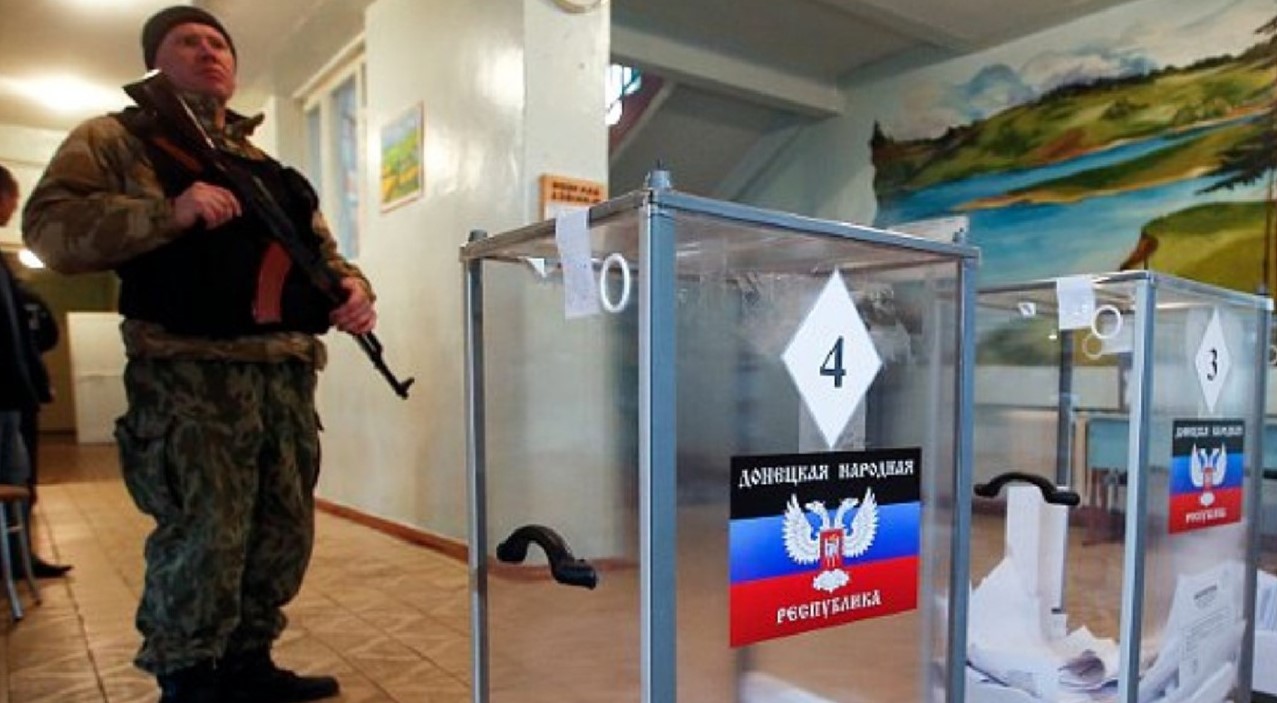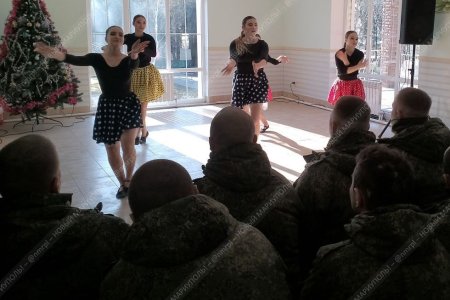
Moscow and Russian state media have pointed to huge queues for Russian passports in the fake ‘Luhansk and Donetsk people’s republics’ [occupied Donbas] as proof that Ukrainians want to become ‘Russians’. The queues have even prompted supposed ‘indignation’ from Russian leader Vladimir Putin that people seeking to become ‘fully-fledged Russian citizens’, should have to wait for so long. The reality is very different. As it did after its invasion and annexation of Crimea, Russia is making it all but impossible to live on occupied territory without taking its citizenship. If you want access to employment, medical treatment and social benefits, you have to have a Russian passport, and there have even been reports of parents effectively threatened with losing custody of their children if they don’t take on Russian citizenship.
The boasting with respect to Russia’s proxy ‘Luhansk and Donetsk people’s republics’ is especially suspect since it can be asked why there should be queues at all. Russia, after all, began foisting its citizenship back on 24 April 2019 when Putin issued his first decree making it easier for residents of these unrecognized entities to get Russian citizenship. Although he claimed that this was a ‘humanitarian’ move, there had been open talk about the ‘success’ of such mass passport issue in occupied parts of Georgia, and of Russia later being able to claim that it needed “to protect” these fake Russian citizens. A second decree on 17 July 2019, made it possible for all Ukrainians in the Donetsk and Luhansk oblasts to receive Russian citizenship according to ‘simplified procedure’, even if they lived on Ukrainian government-controlled territory. Both moves were internationally condemned and the EU, for example, stated that it would not recognize such Russian passports.
Around 18 months after those decrees, the Donetsk Institute of Information published a study suggesting that there had been no enormous demand for Russian citizenship.
The situation changed only after Russia staged fake ‘referendums’ in occupied parts of the Donetsk, Luhansk, Kherson and Zaporizhzhia oblasts in September 2022, and claimed near total support for ‘joining Russia’.
The queues appeared then, but only because of the conditions that Russia imposed on such newly ‘annexed territory’. News of Donbas cites the human rights initiative Donbas SOS as reporting a huge number of calls from Donbas residents saying that they can’t get work without taking Russian citizenship. Those who have jobs face intense pressure and threats of dismissal if they don’t organize a Russian passport. People are also forced to re-register their businesses, however small. Even if not directly forced to take citizenship to do so, the difference in tax rate for ‘Russian citizens’ and those treated as ‘non-residents’ is punitive enough to constitute coercion.
There are also reports on social media that people on occupied territory are not able to receive healthcare without Russian citizenship. Donbas SOS says that they have thus far received few such complaints, however, judging by occupied Crimea, this would be a likely development.
The situation in occupied parts of the Zaporizhzhia oblast is no better. In late March 2023, the Centre for Journalist Investigations reported that Russia and the collaborators it has installed as puppet leaders are stepping up coercive measures to get people to take on Russian citizenship. The Russian-installed ‘governor’ Yevhen Balytsky even promised to have 80% of the population ‘russified’ by September, when Russia is planning to illegally hold its ‘elections’ on occupied Ukrainian territory. He claimed that there are “mobile brigades” travelling around villages with “huge demand” for citizenship.
The Centre for Journalist Investigations has probed where this supposed ‘huge support’ is coming from. Elderly people are promised pensions, but only if they get a Russian passport. In order to travel around parts of the Zaporizhzhia oblast under Russian occupation you need a ‘pass’, and this, too, you can only get if you have Russian citizenship. During the so-called ‘filtration measures’, people are also placed under heavy pressure to take Russian citizenship. One of the people the Centre spoke with said that he was already scared to continue lying to the invaders that he was in the process of getting such citizenship, as you know what the consequences will be if they find out that it wasn’t true.
Russia wants to claim legitimacy for its occupation of Ukrainian territory by referring to such ‘Russian citizens’. Moscow is clearly assuming that it can somehow ‘rewrite history’ with respect to such citizenship, which appeared after Russia’s invasion, not as the excuse for such aggression (in purported ‘defence of Russian citizens’). Such citizenship does, however, make people even more vulnerable as the situation in occupied Crimea has shown, with it near impossible to get Ukrainian political prisoners released when Russia can claim them to be ‘Russians’. While in occupied Donbas, men were forcibly mobilized to fight and die in Russia’s war against Ukraine, with or without citizenship, Russian passports will doubtless be used to justify mobilization in occupied Kherson and Zaporizhzhia oblasts.
On 18 March 2023, Putin signed yet another federal ‘law’ which tries to deny Ukrainians their Ukrainian citizenship. The new ‘law’ claims that Ukrainians can ‘terminate such citizenship’ merely by making the relevant application for Russian citizenship, and for their Ukrainian citizenship to ‘be terminated’. The ‘law’ effectively denies the validity of a person’s Ukrainian citizenship from the moment they make such an application.
Ukrainians on occupied territory are, understandably, worried about the consequences of such supposed ‘termination’ of their Ukrainian citizenship and of applying for Russian citizenship. Olena Lunyova from the ZMINA Human Rights Centre stressed to News of Donbas that any such ‘termination’ was legally meaningless. Nor are Ukrainians living recently occupied territory penalized for taking on Russian citizenship if they do so under duress (as has been the case, since 2014, in Crimea).



